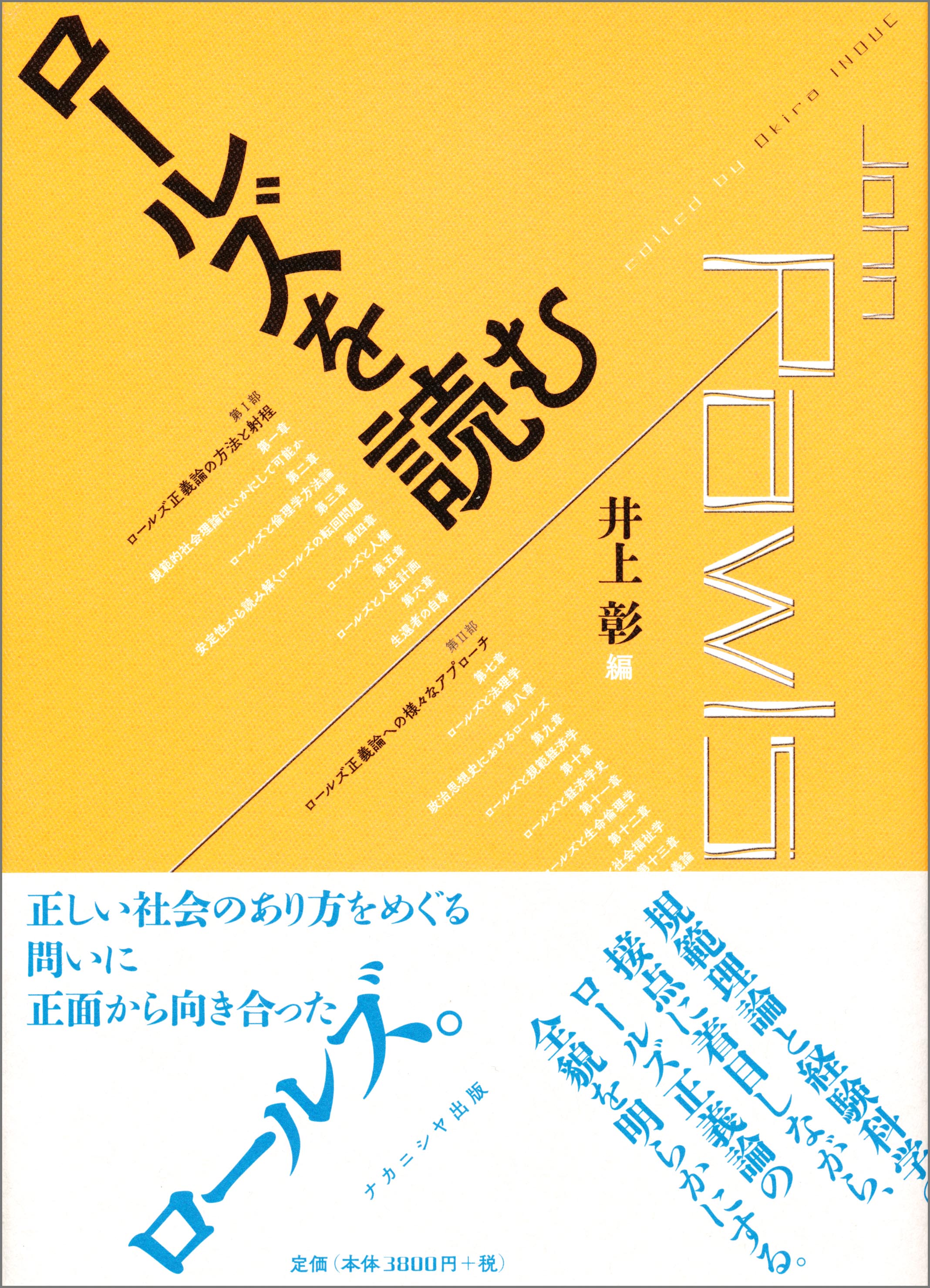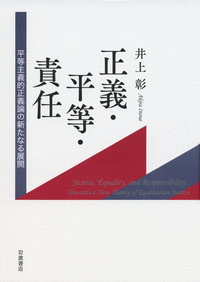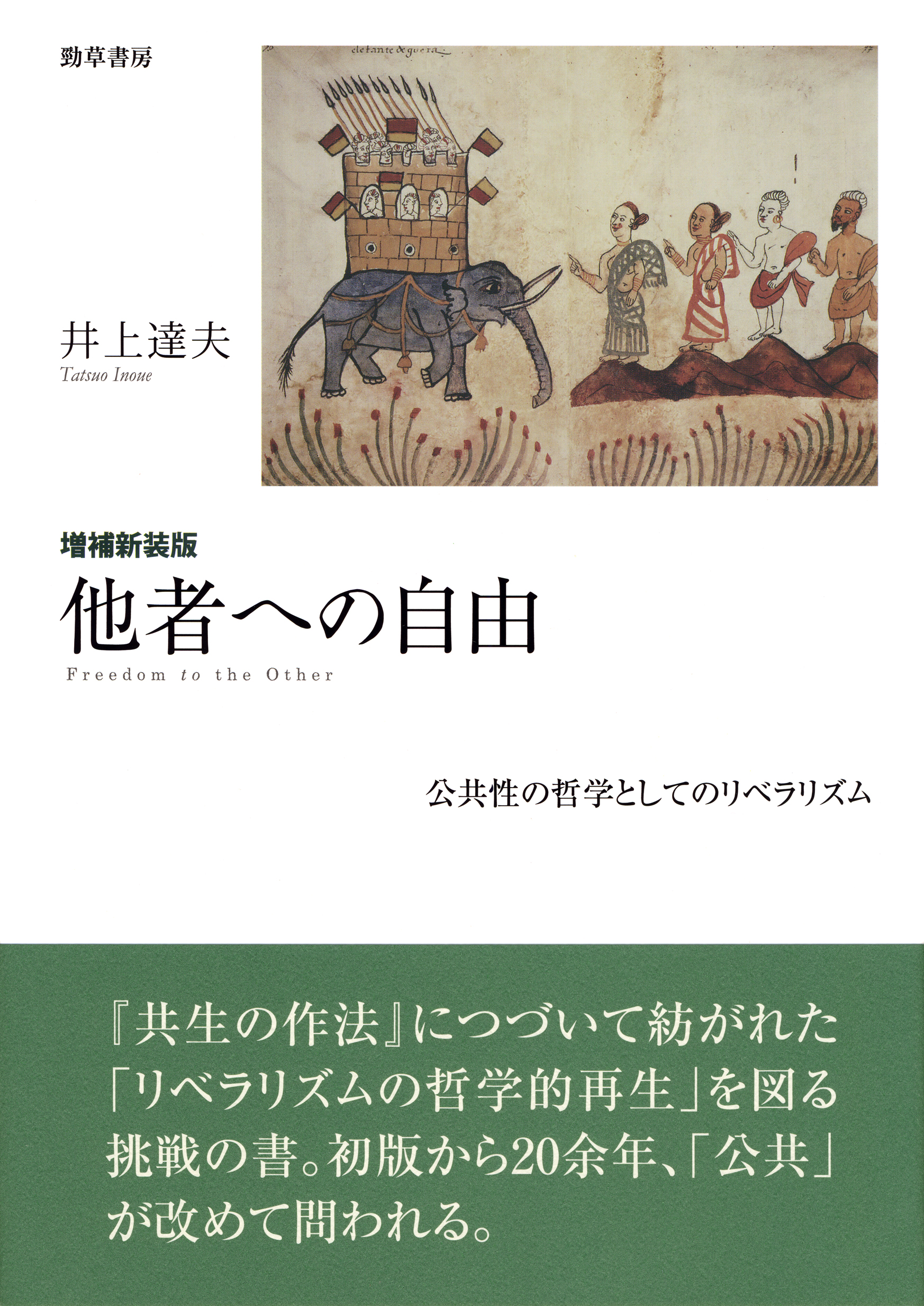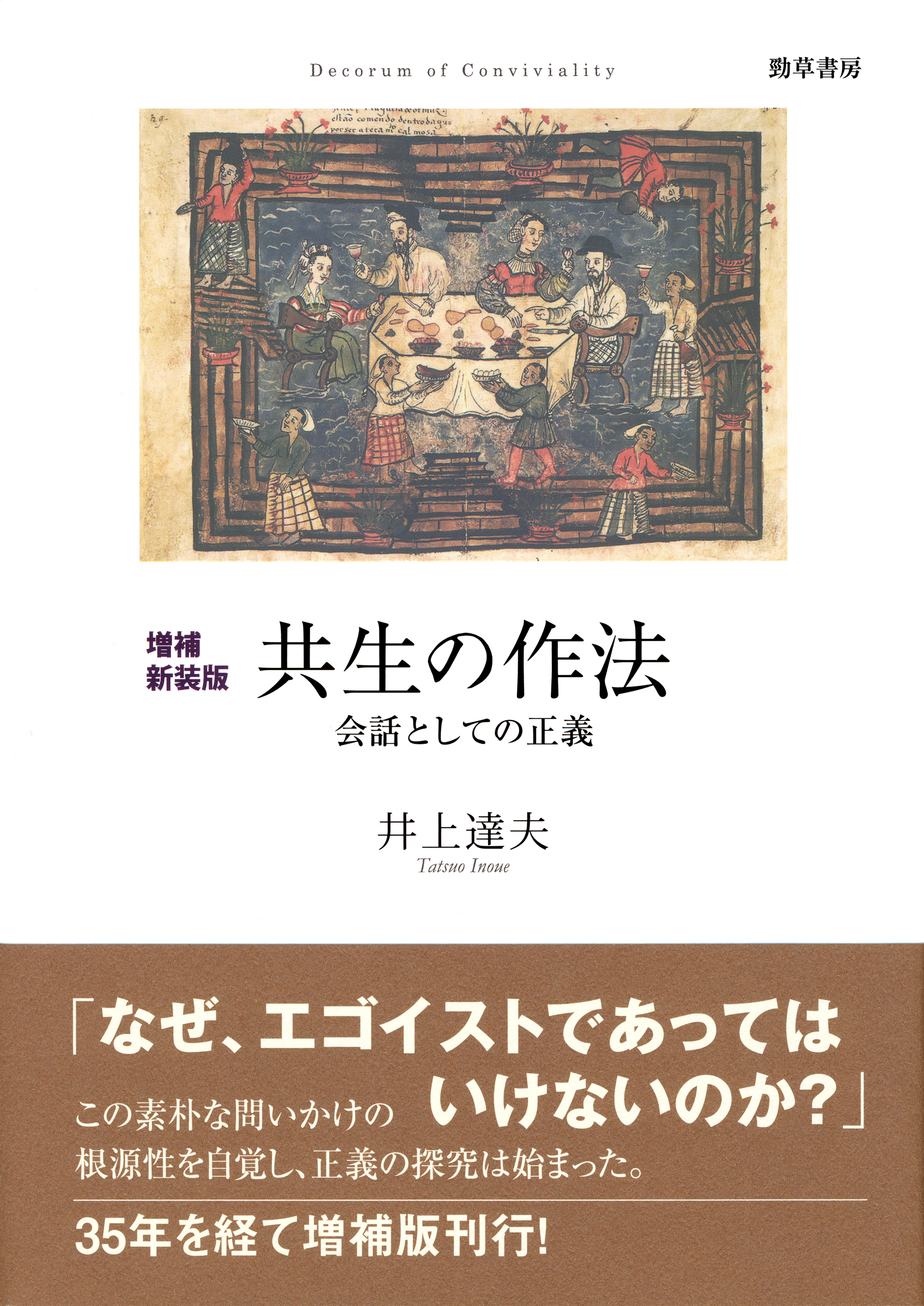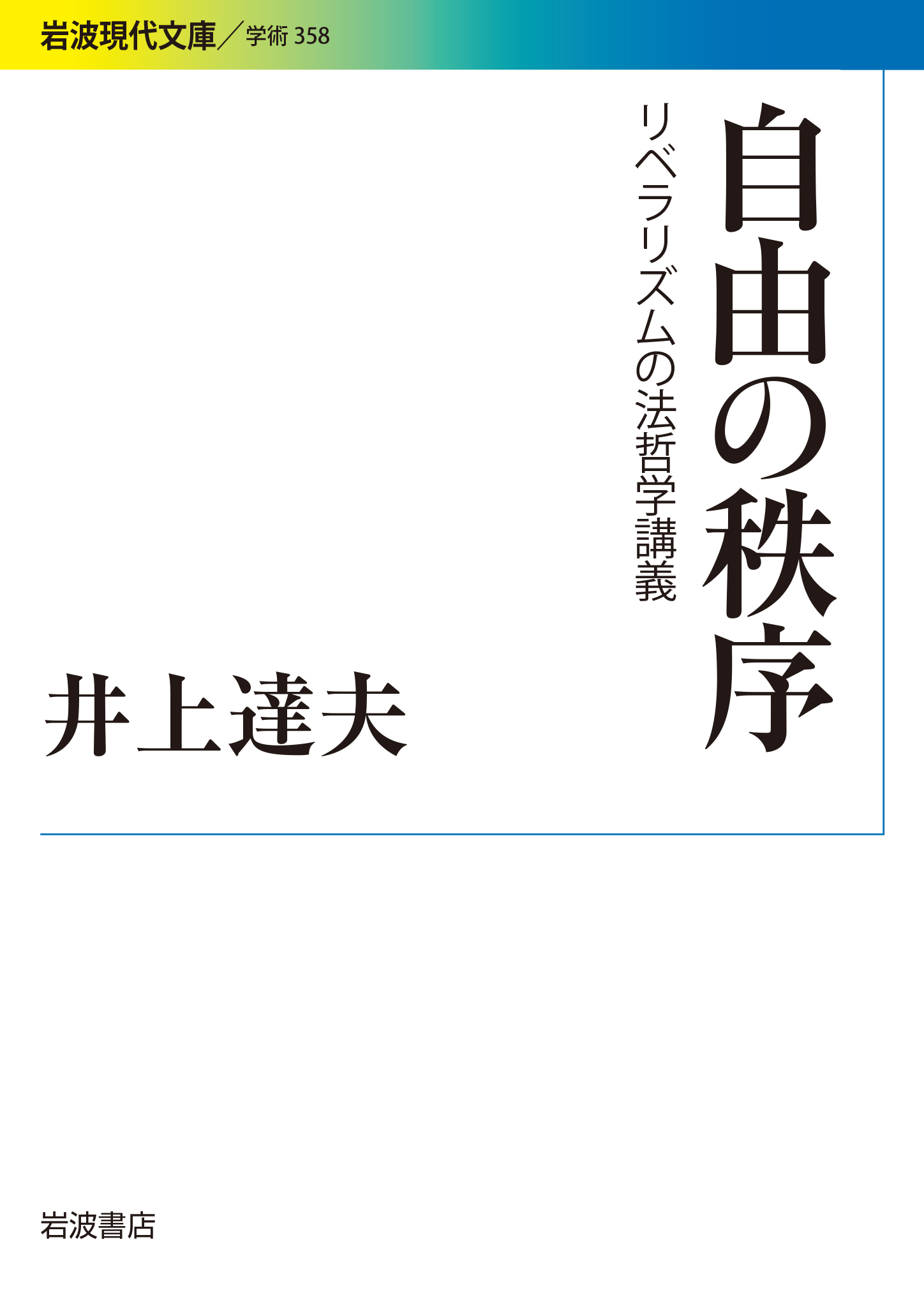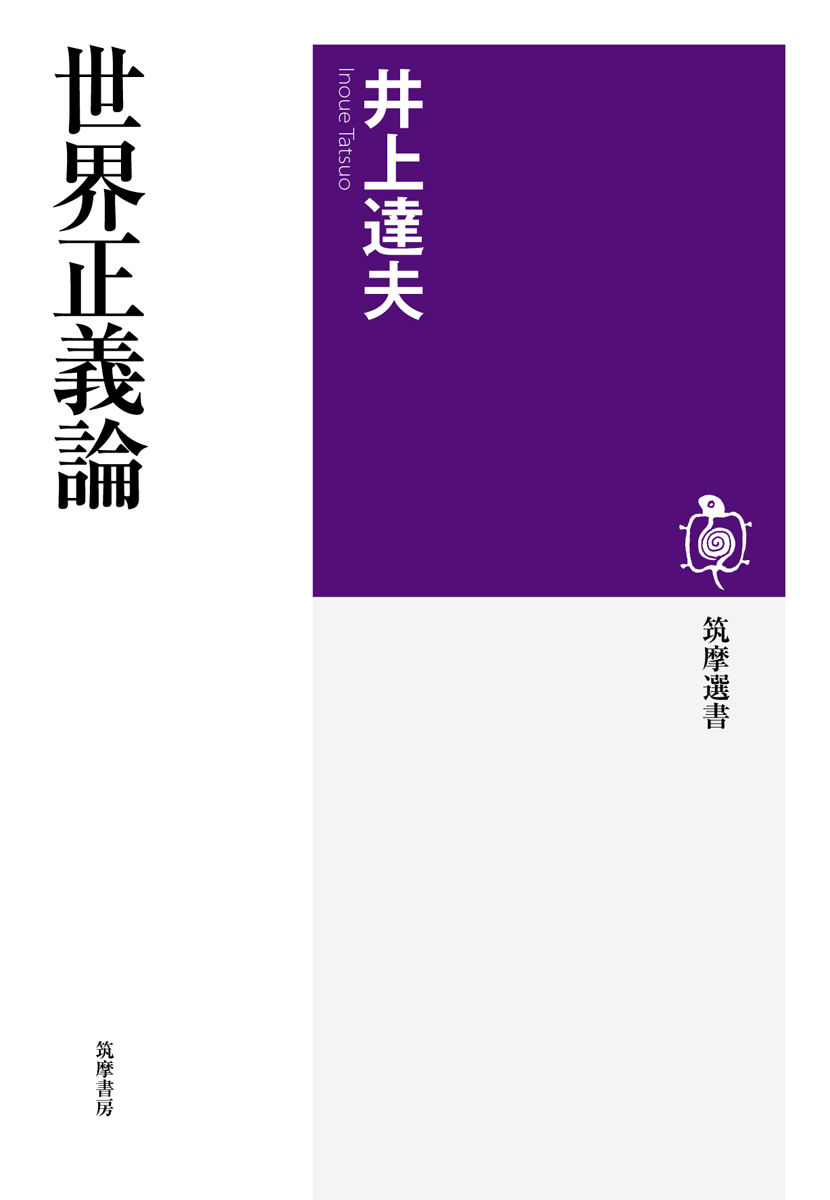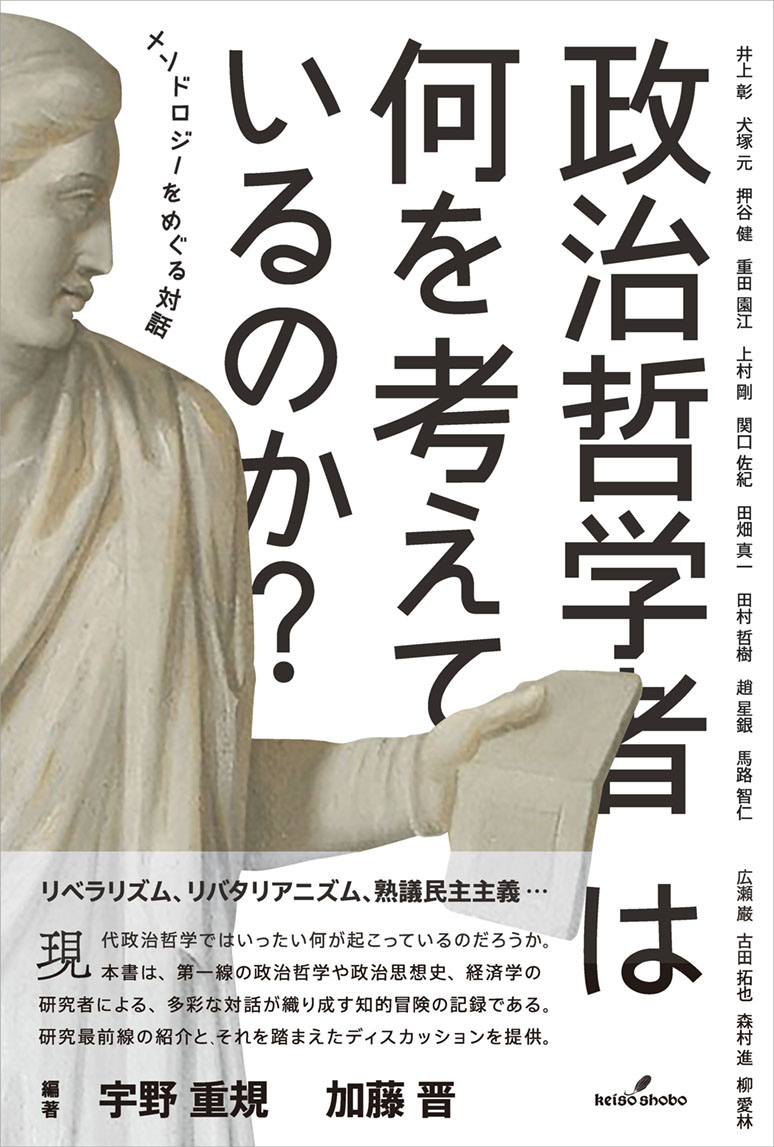
Title
Seiji tetsugaku-sha wa nani o kangaete iru no ka? (What are political philosophers thinking? - Exploring methodological perspectives)
Size
260 pages, 127x188mm
Language
Japanese
Released
February, 2024
ISBN
978-4-326-35192-3
Published by
Keiso Shobo
Book Info
See Book Availability at Library
Japanese Page
How do we cooperate in society? Political philosophy provides an analytical framework for exploring this question. More specifically, it examines how we should navigate and resolve conflicts within society, using methods such as thought experiments and conceptual analyses.
The publication of John Rawls’ A Theory of Justice in 1971 marked a pivotal moment in political philosophy, leading to extensive debates about justice, fairness, and the foundations of liberalism. While Rawls’ ideas profoundly influenced subsequent philosophical discourse, the rich tradition of political philosophy extends far beyond his framework. Enlightenment thinkers and various modern schools of thought developed sophisticated political theories long before Rawls. Furthermore, many contemporary political philosophers have charted independent paths, addressing questions that diverge from Rawlsian concerns. The increasing complexity of modern society has also prompted new philosophical investigations into emerging topics.
What then are political philosophers thinking about today? This book seeks to answer this question, particularly in the Japanese context. By exploring these contemporary discussions, we hope to gain fresh insights into modern society and politics. This motivation is what inspired the present study.
The book is a compilation of six workshops, each focusing on a significant topic in political philosophy. In each of them, two guest speakers explored a single topic from different perspectives, followed by a discussion that included the editor. These discussions have been extensively edited and reorganized to create a coherent and accessible volume. Although the topics are interrelated, each chapter stands alone, allowing the reader to start from any point in the book.
The first chapter discusses Rawls’ philosophy. Specifically, it examines how Rawls’ thoughts evolved and how he interpreted the history of political thought. The second chapter explores libertarianism, presenting arguments on what libertarianism means philosophically and its implications for contemporary society. The third chapter addresses the issue of egoism. Often dismissed as unethical, egoism serves as a crucial benchmark in the social sciences. One cannot fully engage with political philosophy without understanding its significance and limitations.
The fourth chapter delves into the origins of liberalism, introducing recent radical perspectives, and considering the meaning of liberalism in the context of Japan. The fifth chapter discusses the concept of reception history, which has garnered widespread interest in the history of ideas. For example, understanding how Rawls was received in Japan is not just a historical curiosity but a part of the intellectual landscape. The final chapter focuses on democracy, specifically, deliberative democracy. Although the importance of deliberation is widely acknowledged, this chapter explores deeper questions: How should we engage in deliberation? Why is this important in the first place?
(Written by CATO Susumu, Professor, Institute of Social Science / 2024)



 Find a book
Find a book


 eBook
eBook